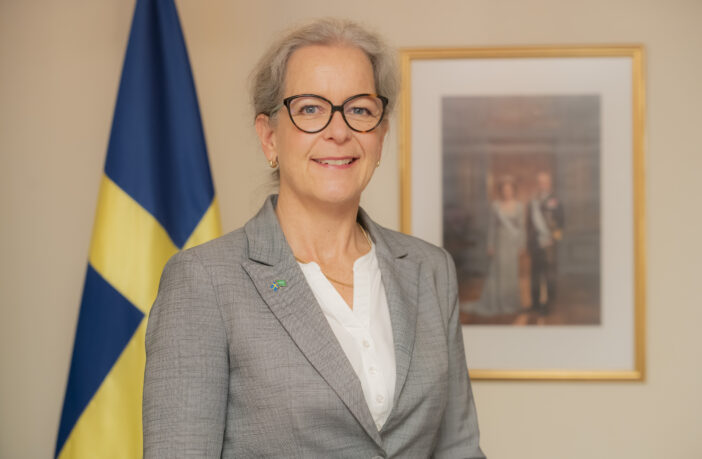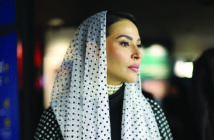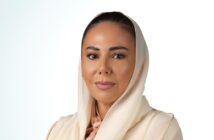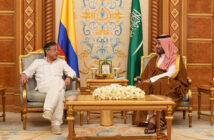What are the achievements of Saudi-Swedish relations that lay a solid foundation for the future?
I would like to highlight two elements that I consider particularly important in modern-day diplomacy between Saudi Arabia and Sweden. One of them is mutual high-level visits. Since I arrived in the Kingdom (one and half years ago), we have had two ministerial visits by the Foreign Minister of Sweden, H.E. Tobias Billstrom, and Minister for International Development Cooperation and Foreign Trade, Johan Forssell, as well as five vice-ministerial visits. This is not really something new. However, these visits strengthen existing relationships and lay the foundation for future efforts.
The second element I want to highlight is the opening of new branches of Swedish companies in Saudi Arabia. In recent years, more and more companies are showing interest in Saudi Arabia compared to previous decades. These are companies that often consider Saudi Arabia to be the first market to operate and export their products outside of Sweden. This is a new model that I believe should contribute to the future productive and value-adding cooperation.
While Sweden is a member of the Nordic family, Saudi Arabia is a member of Gulf Cooperation Council. How do these memberships contribute to regional cooperation?
There is interest in dialogue between the Gulf Cooperation Council and the Nordic family, and this interest comes from both sides. However, we, as [small]Nordic countries, are used to cooperation and close integration so that we can prosper. Moreover, the Nordic countries are a highly integrated region. And based on what we observe in current events in the Gulf countries, this is the same type of integration. These analogous patterns support and facilitate not only bilateral cooperation, but also regional cooperation.
Looking at the bigger picture, Sweden is a member of the European Union and cooperation between the European Union and the Gulf Cooperation Council is growing, strengthened by a more strategic partnership than before. Being very integrated into the European Union, Sweden develops dialogue in various sectors such as security, education and certain other areas. Accordingly, both Sweden and Saudi Arabia will benefit from partnership between the European Union and the Gulf Cooperation Council.
Please discuss the meeting of more than 30 government officials from Sweden in Riyadh. Why was Riyadh chosen as the meeting location?
The regional meeting of ambassadors aims to exchange ideas, developments and messages from Stockholm with the participation of the senior management of the Ministry of Foreign Affairs. The meeting place is usually chosen specifically in order to personally observe the developments in a particular country. This year, Riyadh was chosen because Saudi Arabia is rapidly becoming an active and important player in the region – the Middle East and North Africa.
The second reason for choosing Riyadh as the location for this year’s meeting is Vision 2030, which governs everything in Saudi Arabia inside and outside the country. This meeting provided an opportunity to discuss Vision 2030 and its contribution to local and international developments. Last but not least, it was very important for the Middle East and North Africa ambassadors to understand Saudi Arabia from the inside. Thus, this meeting was another opportunity to meet with local and international officials working in the Kingdom and took diplomacy to a new level.
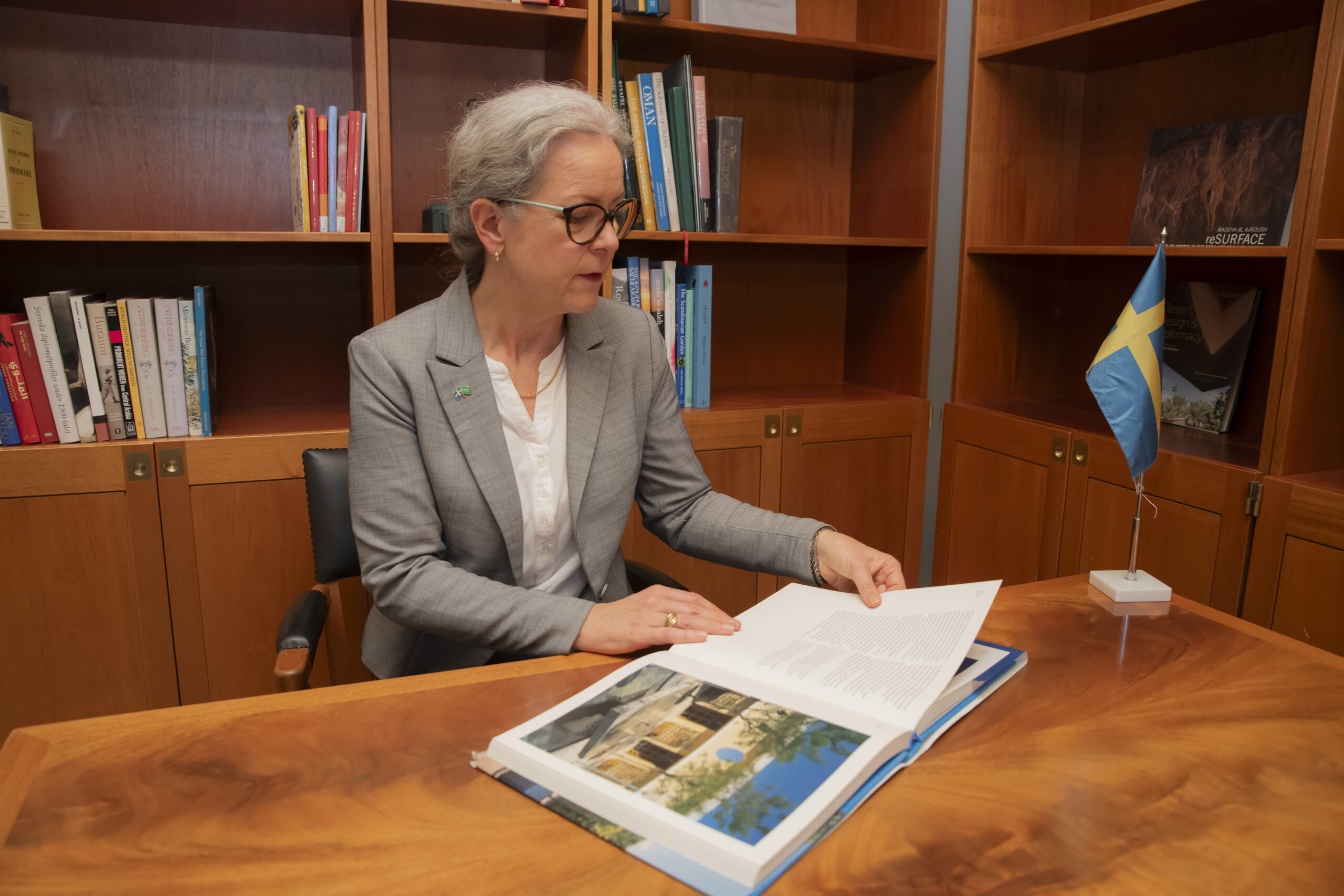
One of the goals of Saudi Vision 2030 is an oil-diversified economy. Apart from oil, what would you consider a Saudi asset that should be nurtured to prosper?
The obvious answer to this question is that Saudi Arabia’s greatest asset is its people – Saudis. This is very important because the hallmark of Saudi Vision 2030 is that the entire concept was built for and around the people of the country. Another strong driving force in Saudi Arabia is its women and their participation in the labor market. Nevertheless, with such rapid transformation in a relatively short period of time, there is a shortage of human resources. While many investments have been made in and for the people of Saudi Arabia, further work is required to support them serve and realize the long-term vision of Vision 2030 because people are the greatest asset of any country and any society.
In fact, this observation also holds true for Swedish companies, which devote relatively significant amounts of investment to training their human resources for healthy competitiveness and professional performance. Thus, given what has already been done in the Kingdom of Saudi Arabia, the young population and the fact that more changes are set to happen with Vision 2030, I believe that people are an asset worth investing in.
I would like you to reflect on the importance of tradition by recalling your attire when presenting your credentials to Crown Prince Mohammed bin Salman.
The dress carries our local heritage and the tradition associated with these dresses comes from the southernmost part of Sweden where I am from. I grew up with a very strong sense of pride in my Swedish heritage and the small community in which I was born and raised. This is a tradition passed down from my grandparents and aunts who always wore traditional clothes on big occasions or holidays. This is something I have also seen in Saudi Arabia, where fabrics and traditional dresses vary from region to region, but respect for tradition remains. I truly appreciate this and recognize this as a unique connection between Saudi Arabia and Sweden through respect for the dresses and roots that we carry, no matter where in the world we serve at the moment.
I cherish this dress for many years and envisioned of wearing it again here in Saudi Arabia for such a big occasion as presenting my credentials. Presenting my credentials to His Royal Highness Crown Prince Mohammed bin Salman in my dress made me feel as comfortable as possible during this auspicious moment in the palace, surrounded by many guards dressed in traditional Saudi dress. This is when one feels truly being an official ambassador of the country – the final confirmation that I really represent Sweden in Saudi Arabia. However, I wore it not to attract attention, but to mark an important moment for me.
Aside from being a home away from home, what are one or two other unique features of the Diplomatic Quarter?
In Sweden we are used to walking every day, and the Diplomatic Quarter is a place that allows me, a Swede, to practice this pleasant habit. At the same time, it is a very lively and entertaining area with many restaurants and places to explore. If you don’t want to leave the DQ area, you don’t have to. However, I like to leave Diplomatic Quarter from time to time as I enjoy walking and exploring Riyadh, but I find peace in the Diplomatic Quarter.

